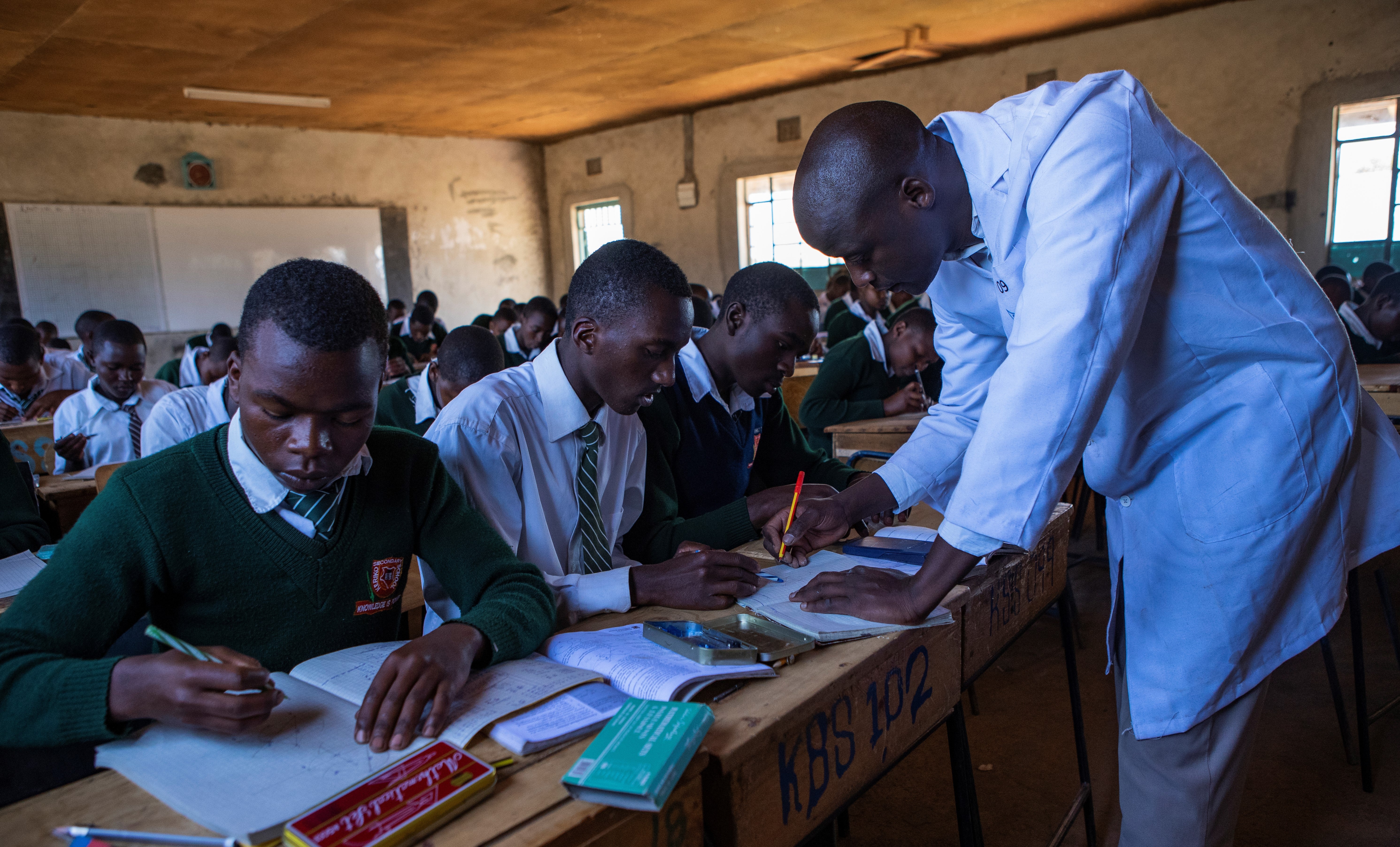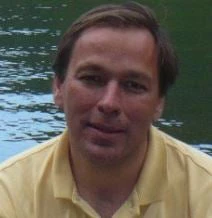 Peter Tabichi with students at Keriko Mixed Day Secondary School in Pwani Village, Kenya. Photo: © Courtesy of Peter Tabichi and the Varkey Foundation
Peter Tabichi with students at Keriko Mixed Day Secondary School in Pwani Village, Kenya. Photo: © Courtesy of Peter Tabichi and the Varkey Foundation
October 5 is World Teachers' Day. Teaching is one the most important professions in society – great teachers and mentors are essential for children to learn and succeed in life, whether at work, in the community, or at home. Peter Tabichi, the 2019 Winner of the Global Teacher Prize from the Varkey Foundation, is a Franciscan Brother who works as a science teacher at Keriko Mixed Day Secondary School, a public school in a remote part of Kenya’s Rift Valley. His dedication, hard work, and passionate belief in his students’ talent has led his school to successfully compete with the country’s best schools in science competitions. Peter gives away 80% of his income to help the poor. He also plans to donate his $1 million price to his local and other communities. He came to the World Bank on September 16 to talk and inspire staff. The session (his own comments followed by a panel) is available on World Bank Live. Peter was gracious enough to grant me an interview that evening, of which excerpts are provided below.
How do you see your role as a teacher?
Teaching is a deep responsibility. It is like a calling, a commitment. As a Franciscan, I believe that it is by giving that you are able to receive. As teachers, we should try to do our best. We have the power to transform society. We need to focus on character formation, making sure that we teach values. As adults, our students will have so many challenges. If they don’t learn the skills and values they need when they are in school, they will face difficulties. So as teachers, we need to help our students learn these values and respect humanity and the environment. How do we deal with climate change? How are we honest and transparent? How can we respect each other? These values must be learned in school.
As Christians, we are called upon to give our best and to reach out to people. Doing what you are doing with passion and love, giving people hope is what we should do. We have so many good teachings in the Church. We also have the descriptions in the Bible. Jesus is talking to us, and we try to put that into practice by leading, not by misleading others. We look at Jesus as the best teacher, as our role model. And then we see what he was doing when he was teaching. He was able to do his work as a teacher.
How do you teach in practice? What is most important to you when you are teaching?
It is all about having confidence in the student. Every child has potential, a gift or a talent. I try to engage students in various activities and mentor them. It is not a matter of telling them “do this” and then walking away. You need to work with them closely.
I teach sciences, but I am also the patron of the peace club. We have children from different tribes, gender, and villages. If you are not careful, the children will stay in small groups and this may create conflict. At the peace club, we have tree planting, debating activities, sports – the main idea is for the children to come and work together, so that they see that they can achieve something as a group, not only as individuals. They see themselves as people who are united. This also helps them do well in the classroom because they are able to work as a team.
Could you give examples of practical ways of how you are teaching science to your students?
One of the things I really find useful is to integrate ICT in my classes. Children really like that. They enjoy it. Unfortunately, in my school we have only one desktop computer and one projector. So, wherever I go, I usually carry my phone to take pictures to illustrate what I am teaching by projecting those images with my laptop in school. Over the week end, suppose I go to the hospital and I see an X-ray machine. I am able to take a photo that I can then use when I teach the students about X-rays and physics.
You also need to improvise. Materials are very expensive for practicums. So, I improvised picking up materials from surroundings. If I am talking about resistance, I can show a radio or another electrical gadget and explain how it is working, or not working. So that students can appreciate how resistances works in practice. This avoids learning to become too abstract or conceptual.
As another example, when I was teaching about friction, I brought a match box to show how friction works. The matches will light with friction, but not without. When I applied paraffin or oil to the matchbox, it did not work anymore. Students can learn from these simple examples.
Your students have won many awards in science competitions. What type of projects did they do?
Some of my students have been able to produce electricity from a simple project with plants acting as electrolyte. These students have been invited to make a presentation in the United States and some may even get scholarships for college.
Another group of students last year came out with a devise that enables the blind to measure the length of an object accurately. These students won a national competition and they were selected to represent Kenya in an international competition – enabling them to take a plane and travel abroad for the first time.
How will you use the Prize money?
I plan to donate the money to empower communities, my own community but also beyond. I am still thinking about how to do this in a way that can be most beneficial.
Any parting thought for our readers?
Everyone has their potential to change the world. We were created for a reason and to be happy. We can work towards happiness, but all of us need to do our part so that the world becomes a better place. We need to promote peace through what we do. Whatever we do, the main focus should be to promote peace. If we are serving God, we will be able to teach well, or treat patients well [for doctors and nurses].




Join the Conversation